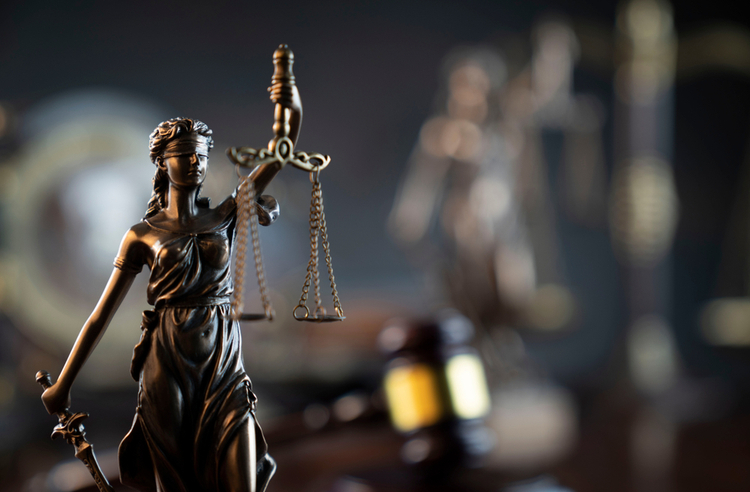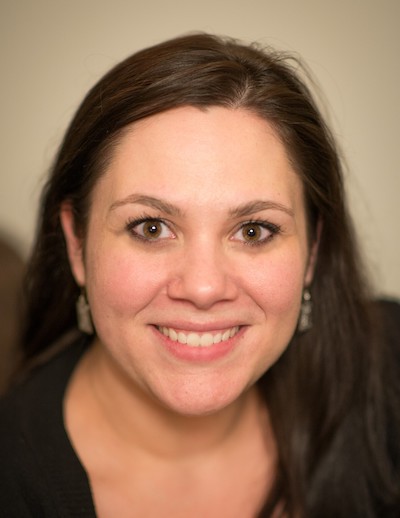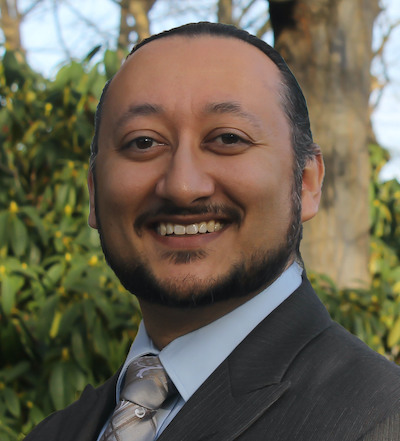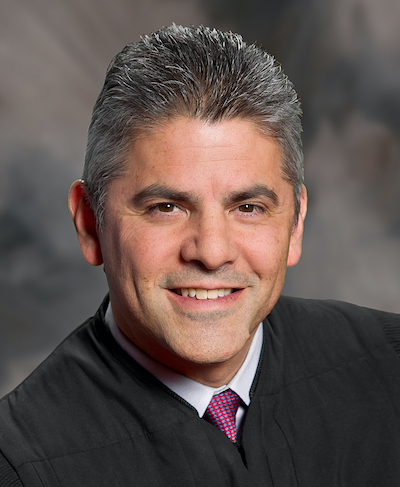How the Washington Supreme Court's LLLT program met its demise

Image from Shutterstock.com.
When the Washington Supreme Court announced in June 2012 it had adopted a rule permitting the licensing of nonlawyers to undertake some legal tasks, the news provoked the usual chorus of criticism from attorneys that it would result in members of the public receiving substandard legal assistance.
However, the court majority that backed the nation’s first Limited License Legal Technicians initiative said it was an attempt to provide the public with greater access to affordable legal services amid a growing need for such help.
With the court’s blessing, LLLTs were subject to stringent licensure requirements and allowed to practice within family law. By 2015, the initial cohort of LLLTs were licensed and the program sparked discussions in other states about whether to implement a similar legal paraprofessional license.
Eventually, the LLLT program even won over the Washington State Bar Association’s board of governors, as the panel unanimously approved a resolution in 2016 indicating its strong endorsement of the limited license rule and ongoing implementation efforts. The bar’s board also voted to make LLLTs members of the bar and agreed to a bylaw change that would give a board seat to either a LLLT or the one other type of nonlawyer licensee the bar regulates.
But in a stark 180-degree turn, the limited license program rapidly lost the support of the bar’s board and the court as the makeup of both bodies changed.
Since 2017, the court has rejected requests to allow LLLTs to practice in areas beyond family law, while the state bar refused to allow its technology to be used for LLLT candidates’ education and secured court approval to eliminate the board seat that could have gone to a LLLT.
 Sarah Bove, a Redmond-based LLLT.
Sarah Bove, a Redmond-based LLLT.
“It seems like any opportunity that they’ve had, they’ve acted in a way to quiet, limit or undermine this license,” says Sarah Bove, a Redmond-based LLLT.
These actions, which limited license advocates believe were driven by lawyer protectionism, made it more difficult for the LLLT program to attract new applicants and generate additional revenue so it could move toward financial self-sufficiency.
Meanwhile, in May, the state bar’s treasurer raised cost concerns and an apparent lack of interest in the LLLT program when suggesting the court consider sunsetting the initiative. Citing similar reasons, the supreme court voted 7-2 in June to sunset the program.
Opposition to new practice areas
Barbara A. Madsen was the Washington Supreme Court’s chief justice when it voted 6-3 to adopt the limited license rule in 2012 and when it approved the LLLT board’s proposal to make family law the first practice area for technicians in 2013. “She made it happen,” says Steve Crossland, the LLLT board’s chair since its creation. “She is a real champion of access to justice.”
But Madsen, who remains on the court, was replaced as chief by Mary Fairhurst in 2017. By that point, two other justices who had voted for the LLLT rule had left the court and been replaced by new justices.
In recent years, the court has largely rebuffed the LLLT board’s other formal and informal proposals to add new practice areas in hopes of attracting more candidates and serving a wider segment of the public.
In 2017, a majority of the court approved the LLLT board’s request to broaden the family law practice area, but it rejected a proposed new area of elder care and health law, according to a letter written that April by Fairhurst to Crossland. Fairhurst wrote that a majority of the court “would like the LLLT board to explore other areas.”
The board considered expansion into landlord/tenant, immigration and consumer debt law, among other practice areas.
This April, the LLLT board formally asked the court to approve the new practice areas of Washington administrative law and eviction and debt assistance, noting that the COVID-19 pandemic was likely to increase the already substantial need among the public for legal assistance in those domains.
The LLLT board also asked the court to make rules revisions modifying some licensure requirements, including reducing the mandated 3,000 hours of paralegal practical experience. The panel said a business plan it developed that would result in the LLLT program generating enough revenue to cover the state bar’s direct expenses for administering the initiative by 2022, and to cover all costs by 2029, was contingent on the court approving the practice area and licensure changes.
Washington State Bar Treasurer Daniel D. Clark recommended the court deny approval of the new practice areas, given the LLLT program had yet to become self-sustaining in its first practice area.
 Debra L. Stephens, chief justice of the Washington Supreme Court.
Debra L. Stephens, chief justice of the Washington Supreme Court.
The supreme court voted 7-2 in early June to reject the proposed additional practice areas and rules revisions, with two new justices sworn in earlier this year backing the rejection. Debra L. Stephens, who became chief justice earlier this year, and Madsen dissented.
Justice Steven Gonzalez, who voted in favor of establishing the LLLT license eight years ago, tells the ABA Journal the LLLT board’s proposed new practice areas through the years “seemed ill-conceived.” He points to the example of immigration law, which would have required the approval of federal immigration authorities and is what he called a high-stakes, complicated area of law.
“There should have been better proposals about what those practice areas would be,” Gonzalez says.
Christy Carpenter, a Tacoma-based LLLT and LLLT board member, counters that new practice areas could have generated greater interest in the technician license because many paralegals were not interested in handling family law matters. “There are paralegals in many other practice areas who are ready to jump on the opportunity to enter in the program if other practice areas are offered,” Carpenter says.
By comparison, when Utah launched its Licensed Paralegal Practitioner program in recent years, it permitted nonlawyer licensees to undertake limited legal tasks in three practice areas: family law, debt collection and landlord/tenant.
Eliminating nonlawyer board seats
Like the state supreme court, the Washington State Bar’s board had at times backed the LLLT initiative.
In September 2016, the board approved the resolution indicating its strong support for the limited license rule and praising the “exemplary job” done by the LLLT board.
The bar’s board also voted during that time period to make LLLTs members of the bar effective in 2017, and it approved a bylaw change calling for there to be a new member of the board who was either a LLLT or a limited practice officer, known as an LPO. An LPO is a nonlawyer “licensed to select, prepare and complete approved documents for use in closing a loan, extension of credit, sale, or other transfer of real or personal property,” according to the bar’s website. (LPOs were made members of the bar at the same time as LLLTs, according to the bar).
William D. Pickett, who was elected to the bar’s board in 2015 and served as its president from March 2018 to fall 2019, says the annual turnover on the board in recent years produced new members who called themselves “reformers” and were hostile to the LLLT program.
Pickett, who describes himself as a strong supporter of LLLTs, says the opposition stemmed from lawyers who feared “that their market share [would] be eroded” by nonlawyer technicians.
Along those lines, a bar critic’s March 2018 email urging a vote for three reform candidates for the association’s board warned that bar staff “are stepping up their efforts to admit non-lawyers to the practice of law, even while lawyers are suffering underemployment and massive student debt.”
Meanwhile, an early example of the board’s change in approach to the technician program was its handling of the LLLT/LPO board seat and two other new board seats designated for nonlawyer community members.
The Washington Supreme Court approved the bylaw changes creating those seats in January 2018, noting that they appeared necessary “for the consideration of the viewpoints of all members and of the public.”
But the bar’s board never appointed anyone to the posts. Instead, the bar asked the supreme court earlier this year to approve bylaw changes that included eliminating those nonlawyer seats and switching the remaining three board-appointed seats to elected positions.
 Rajeev Majumdar, president of Washington State Bar Association. Photo from the Washington State Bar Association.
Rajeev Majumdar, president of Washington State Bar Association. Photo from the Washington State Bar Association.
Bar President Rajeev Majumdar highlighted in a March 2020 letter to the court that under the changes, a LLLT or LPO could seek to fill all bar board seats except the at-large young lawyer slot.
“All members will be treated equally,” he wrote.
The LLLT board opposed the bylaw changes, arguing that allowing LLLTs and LPOs to run for election was the “functional equivalent of excluding them” because they make up a tiny percentage of the bar’s membership.
“LPOs and LLLTs are licensed legal professionals with diverse experiences and perspectives and should have actual representation in the governing body rather than being treated as passive recipients of decisions impacting them, their clients and communities,” Crossland wrote in a January 2020 letter to the bar’s president, a document he shared with the supreme court.
Despite the opposition, the court adopted the bylaw changes in April. Three judges dissented, and Madsen’s written dissent criticized the elimination of public members of the bar’s board.
“In my view, the WSBA’s mission of public protection is enhanced when members of the public are included in at-large positions on the WSBA’s board of governors,” she wrote, noting that other state bar boards include public members.
Financial roadblocks
LLLT supporters say the program has been undermined by the bar’s board in a variety of other ways.
Several months ago, the LLLT board requested permission to use the state bar’s technology to provide family law education to roughly 20 LLLT candidates. It did so because the University of Washington would no longer be offering the practice area courses.
Allowing the LLLT program to utilize its technology would have generated thousands of dollars for the bar; the bar’s chief regulatory counsel tells the ABA Journal estimates were “it would net somewhere between $5,700 and $7,300 per quarter, or [three] times that amount per year” as the courses are offered over three quarters.
During a January 2020 bar board meeting, board member Peter “P.J.” Grabicki urged his colleagues to support the LLLT education proposal. “We shouldn’t be seen as trying to frustrate the program when they have made a proposal that is net benefit to us, not a net cost,” Grabicki said.
But soon thereafter and without explanation, board member Carla J. Higginson made a motion that the board take no action to provide LLLT courses “at this time.” The motion passed 11-1, with Grabicki in opposition.
Asked about the issue during a May meeting with the supreme court, the bar board’s treasurer said, “There were concerns over the bar doing this for antitrust reasons.”
Crossland says it was “contradictory” for the bar’s board to complain that the LLLT program was not generating enough revenue and then block a proposal that, if adopted, would have produced thousands of dollars. He says it was part of the bar board’s efforts “to get rid of the LLLT program or, by the power of the purse strings, strangle it.”
Additionally, the LLLT board requested that the Washington State Bar Foundation, which has its own board, create a fund that would permit the limited license program to seek contributions from donors and grantors. The funds would assist the LLLT program with outreach and reduce the fiscal impact to the state bar of operating the program, Crossland wrote in a March 2020 letter.
In April, state bar foundation president Kristina Larry wrote Crossland that the foundation’s board had voted against the request after “a robust discussion.”
“The funds and scholarships that the foundation currently administers are all for WSBA Sections, and the board did not feel that it was appropriate to deviate from that model at this time,” wrote Larry, who told the ABA Journal she voted in favor of the LLLT fund.
State bar leaders defend their approach
Some current state bar leaders deny that the association’s board has not been supportive of the LLLT program in recent years.
Majumdar said in a written statement that the board has stood by its 2016 resolution applauding the LLLT rule “and has continued to approve every budget request the LLLT program has asked for to achieve its mission.”
However, he acknowledged individual board members have raised cost concerns, such as how long it would take the LLLT program to become self-sufficient and not draw on fees paid by lawyers.
Clark highlighted such issues in recent written and verbal communications to the supreme court, including a May 2020 letter that said the bar’s direct and indirect costs for administering the LLLT license had exceeded revenues the program had generated by nearly $1.4 million. That financial performance contrasts with the court expressing confidence in its 2012 order approving the program that a fee-based system would be developed so that the licensing and regulation of LLLTs would be cost neutral to the state bar and its members.
Clark also wrote there had been “limited historical growth and apparent interest of the public in becoming an LLLT member.” Though the initial LLLTs were licensed in 2015, a late June search of the bar’s legal directory revealed just 45 LLLTs, with 39 listed as active.
“The financial numbers and historical performance of the limited license should not be blamed on the WSBA not being supportive of the program or efforts of the LLLT Board,” Clark wrote the court.
Crossland, the LLLT board chair, says he would have liked there to have been more licensees by now. But he points out that the LLLT program was created from scratch since it was the first in the nation, and this foundation-building took several years. Crossland also says critics’ cost concerns are overblown, given that the state bar’s annual spending on the LLLT program is less than 1% of its yearly budget, which is roughly $25 million, according to the bar.
“I think it is indefensible for them to say we are a drain on the license fees lawyers pay when they could look at the other 99% of where they spend their money,” says Crossland, noting the bar’s spending on litigation and other issues arising from what an outside investigator concluded last year was the bar board’s creation of a hostile work environment.
But Clark, the bar board’s treasurer, recommended in a presentation during the May meeting with the court that it consider a possible sunset of the LLLT program as one option. Clark says his actions were authorized by the bar board’s Budget and Audit Committee, and that Majumdar and the bar’s president-elect “were fully aware of the presentation that would be made to the court.”
Meanwhile, Majumdar told the ABA Journal that Clark did not represent the bar or its board with “his opinion and analysis” shared at the May 12 meeting, though the president said the bar’s Budget and Audit Committee did authorize the treasurer to relay his individual concerns.
“The board of governors did not recommend a sunset to the program, nor did any committee vote on that topic,” Majumdar said in a statement.
Pickett, who is serving as the board’s immediate-past president, called the board’s attempt to downplay its opposition to the LLLT program cowardly.
“There has been an active group of lawyers that for some time has been determined to put up every conceivable roadblock in an effort to eliminate the program,” Pickett says.
 Justice Steven Gonzalez. Photo from the Washington Supreme Court.
Justice Steven Gonzalez. Photo from the Washington Supreme Court.
Supreme Court deals program a fatal blow
At the supreme court’s June 4 en banc administrative meeting, Justice Susan Owens, who authored the dissent to the approval of the LLLT program in 2012, made a motion to sunset the initiative. Gonzalez seconded the motion, which was approved 7-2, with Stephens and Madsen dissenting.
The sunset permits LLLTs in good standing to remain licensed and keep providing services. But anyone not already in the LLLT pipeline is prohibited from pursuing the license, and those in the pipeline as of June 4 have until July 31, 2021 to complete the licensure requirements.
Gonzalez says he supported sunsetting the initiative because “it never came anywhere close to sustaining itself.”
“My urging continued to be to them, ‘Think of yourself as a small business that is applying for a small business loan, and you have to convince the lender that you are a viable operation,’” Gonzalez says. “I never saw such a plan.”
Owens did not respond to an interview request made through the court’s communications office.
Madsen wrote a dissent letter in which she criticized both the process leading to the majority’s vote and the merits of the decision, calling the cost concerns about the program “hollow.”
“I think the court is on the wrong side of history on this,” Madsen says in an interview. “I also think it is a disservice to the public.”
Stephens also says she did not feel the cost issues were fully explored or justified sunsetting the program.
However, the chief justice says her bigger worry was the process, calling it “highly unusual” for the court to vote to sunset the program even though that issue was not on the agenda for its June en banc meeting.
“I was concerned we shouldn’t take that action without letting people know that was under consideration,” Stephens says. “I had urged that we put out a public notice and take it up in July.”
In recent weeks, the Washington Supreme Court has received requests to reconsider its sunset vote in whole or in part.
Stephens says one issue raised by several communiques has been that the timeline set for those in the LLLT pipeline to become licensed is too short.
The LLLT board told the court in a June letter that there are at least 275 students in the pipeline, and it requested that the court extend the licensure deadline until at least Aug. 1, 2023.
“Students are reeling from the court’s decision,” the board wrote. “These are people who can ill-afford to absorb the loss of money and time spent pursuing the LLLT license.”
On July 9, the supreme court voted to make two modifications to its sunset decision, according to a letter that Stephens sent to the leaders of the state bar and LLLT board.
“First, the court authorized an immediate reduction in the experience hours required of candidates for LLLT licensure from 3,000 hours to 1,500 hours,” Stephens wrote. “Second, the court voted to allow LLLT candidates until July 31, 2022, to complete the experience hours requirement, so long as they have completed all other licensure requirements, including taking the LLLT examination by July 31, 2021.”
“The court, by majority, declined to take any other action on the LLLT board’s request for reconsideration,” Stephens added.
Meanwhile, the LLLT board and the program’s supporters are mulling options to maintain the program, including requesting that the legislature act.
“We are not done,” Crossland says. “We will find ways to make this work.”
See also:
ABAJournal.com: “Despite kinks in program, nonlawyers successfully providing some legal services in Washington state”
Updated July 10 at 3:10 p.m. to include subsequent action from the supreme court concerning the future of the LLLT program, as well as to provide additional information about the role of the state bar treasurer.
Write a letter to the editor, share a story tip or update, or report an error.


